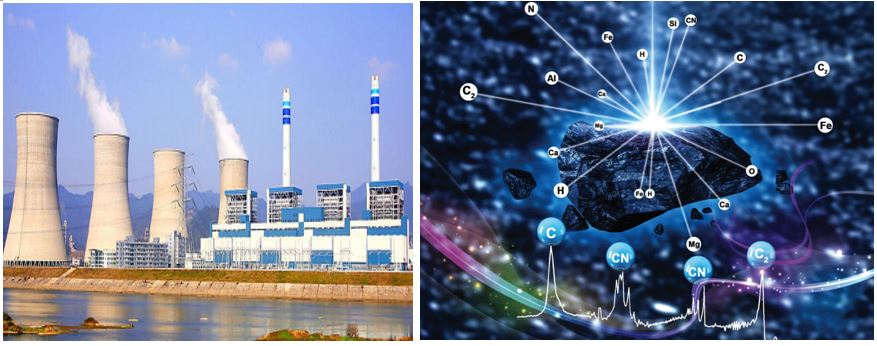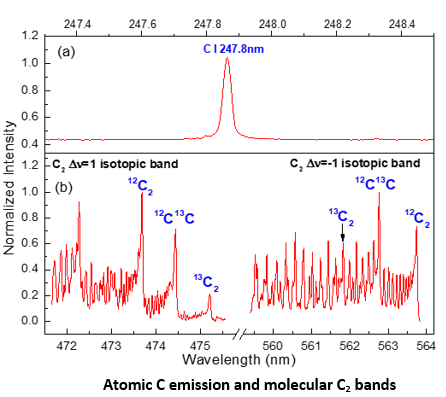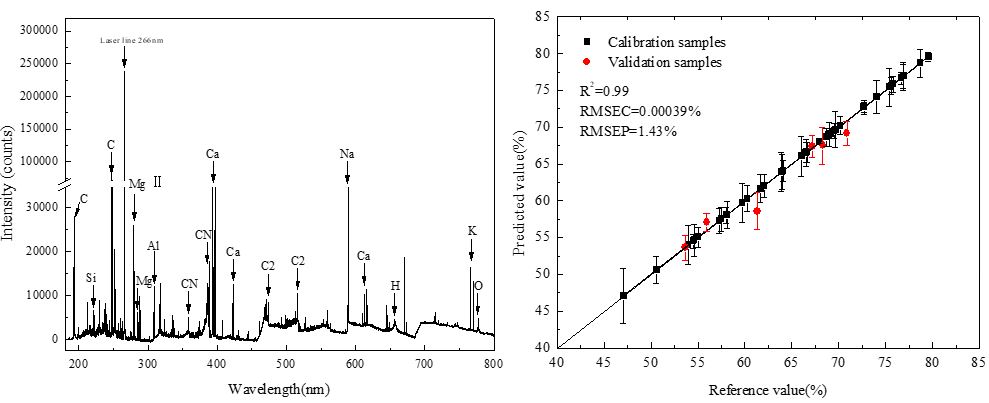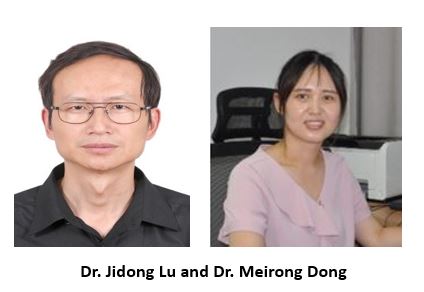Outstanding Webinar Series on Laser Ablation Chemical Analysis: Advanced LIBS Analysis for coal, Fly Ash, and Heat-Resistant Steel
Applied Spectra, Inc. invites you to attend our 2nd webinar of the outstanding webinar series on laser ablation chemical analysis. This webinar features the excellent analytical research work led by Dr. Meirong Dong and Dr. Jidong Lu at South China University of Technology, Guangzhou, China. The research group led by Dr. Dong and Dr. Lu has a rich history of developing Laser Induced Breakdown Spectroscopy (LIBS) for rapid characterization of coals and other materials critical in power generation.
As the need for cleaner power generation arise to meet growing power demand and more strict environment regulatory requirements, fast analytical techniques such as LIBS for assessing coal properties to optimize power generation, to ensure complete combustion, and to determine fly ash and volatile content is becoming essential. Furthermore, rapid analytical technology is equally critical in monitoring structural integrity of the power plant steel pipes and thereby assuring the safety of the plant operation. In this webinar, Dr. Dong and Dr. Lu will present their research work in applying LIBS for accurately estimating coal properties and providing information related to power plant steel aging that are beyond simple elemental information. The webinar touches upon advanced chemometric analysis of the LIBS data to enhance the accuracy of the multivariate models that will be explored – MLR, PLSR, and SVR. The webinar also features innovative concept of utilizing molecular emission bands within LIBS spectra to better correlate unburnt carbon content in fly ash. Attend this webinar to learn this exciting advance in characterization of coal with advanced data processing!.

Webinar Schedule
Duration:1 hr
Session 1
Tuesday, September 1, 2020 7:00 AM PST-8:00 AM PST
(or 4:00 PM to 5:00 PM EU) Open to all: recommended for attendees in the EU and USA
Session 2
Wednesday, September 2, 2020 10:00 AM to 11:00 AM (Seoul and Tokyo Time)
(or Tuesday September 1, 2020, 6:00 PM to 7:00 PM San Francisco, USA) Open to all: recommended for attendees in the Asia, SE Asia, and Australia
Webinar Abstract
In this presentation, we demonstrate the advantages of using LIBS for coal, fly ash and heat-resistant steel analysis focused on the fundamental issues and strategies for quantification to achieve the accurate characterization of the key properties of these substances. The main contents include:
- LA plasma fundamentals
Nonmetallic elements are important parts of material composition, but it often is a challenge to analyze non-metal elements by LIBS. The formation of molecular C-N and C2 bands were revealed by LAMIS. Molecular C-N could be used for the the identification of carbon from the organic and carbonate forms and molecualr C2 from coal could be used to correct for plasma fluctuations.

- Calibration strategies for coal and fly ash
- The calibration strategies based on dominant factors combined with deviation correction method was proposed to realize the quantitative analysis of carbon and hydrogen in coal.
- The Support Vector Machine Regression (SVR) based on K-fold Cross Validation (K-CV) parameter optimization can effectively improve the accuracy of quantitative analysis of calorific value, ash content and volatile content.
- The combination of carbon atomic and molecular emissions with plasmas temperature correction could improve the accuracy and precision for quantitative analysis of unburned carbon in fly ash samples.
- The contribution and impact of combined laser ablation inductively coupled plasma time of flight mass spectrometry (LA-ICP-TOF-MS) and laser induced breakdown spectroscopy (LIBS) were also evaluated for coal sample classification.

- Failure prediction of heat-resistant steel
The failure of heat-resistant steel is a great safety and operation issue for power plant equipment. The traditional analysis method is time-consuming and requires tedious sample preparation and handling. LIBS was proposed to realize the failure prediction of heat transfer surfaces based on the matrix effects caused by the changes of microstructure and mechanical properties of boiler tube.

Webinar Presenters

Prof. Jidong Lu is the senior expert on the field of optimum design, performance and maintenance of energy conversion system and equipment, and utilization of laser diagnosis and intelligent control in energy conversion system at South China University of Technology (SCUT). He is the founder and scientific director of the clean energy conversion and system optimization group at SCUT. The research programs in this group are closely integrated to national basic science and industrial technologies. His LIBS research focuses on the online detection of key parameters in industrial processes including coal, fly ash, and metal heating surface.
Associate Prof. Meirong Dong, received her PhD at SCUT in the research group “Energy Clean Conversion and System Optimization” headed by Prof. Jidong Lu. She conducted her a visiting scientist research under the supervision of senior scientist Dr. Richard E. Russo at Lawrence Berkeley National Laboratory (LBNL) for two years starting in 2011. Her research is mainly focused on molecular formation of plasma, calibration strategy of LIBS and advanced optical measurement technology in energy conversion process.



